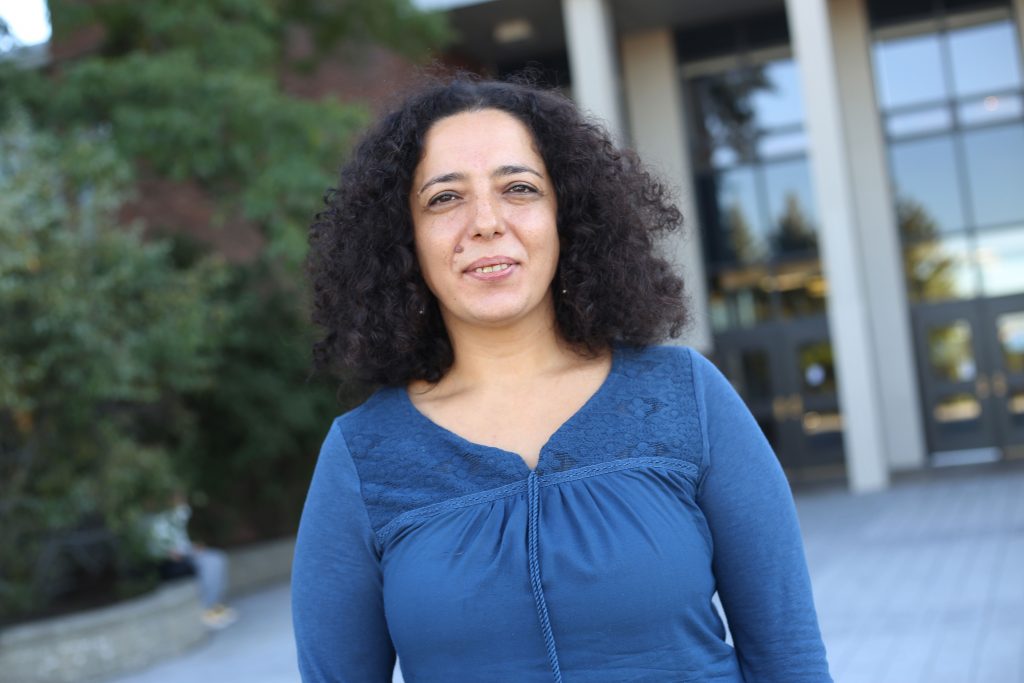
On Jan. 12, 2016, a bombing by ISIL killed 13 tourists in Istanbul. Later that day Recep Tayyip Erdogan, the president of Turkey, talked briefly about the attack. He then spent the rest of his speech threatening a group of academics who had called for peace in the country, claiming that they were responsible for supporting the terrorist group.
Delal Aydin, a seventh-year Ph.D. candidate studying sociology at Binghamton University, was one of those academics.
At the time, Aydin had been researching the Kurdish youth movement during the 1990s. While she was doing this, fighting broke out between the government and Kurdish resistance groups.
In protest, Aydin signed a petition, along with 1,128 other academics, which called for an end to the violence and human right violations against the Kurdish people.
“We, as academics and researchers working on and/or in Turkey, declare that we will not be a party to this massacre by remaining silent and demand an immediate end to the violence perpetrated by the state,” the petition stated.
In the wake of the president’s speech, pro-government organizations began seeking out the academics who placed their signatures on the petition. Travel bans were issued, hundreds lost their jobs and many feared for their lives.
“All the mainstream media — pro-government media because the Turkish government has all media channels — published our names and photos,” Aydin said. “They wanted a lynching. Some friends, especially in small cities, were under distress. One of my really close friends just escaped from lynching by a few minutes.”
Aydin immediately reached out to the sociology department at BU, and asked for help leaving the country. Within half an hour Denis O’Hearn, the chair of the sociology department at the time, had a student visa delivered to her.
On Jan. 28, Aydin returned to the United States. Because the spring semester had already begun at BU, there were no positions available. To help her, the sociology department created the Binghamton University Student Emergency Fund, a resource for students experiencing “unusual and unforeseen financial demands,” per the University’s website. The fund is now available to other students in similar situations.
As a part of her research in Turkey, Aydin had interviewed multiple people that were part of the Kurdish resistance movement. After threats from the government, she uploaded all of her information to Dropbox and stored notebooks in her friend’s houses and cars before she was able to leave the country.
“I spent a lot of months getting the trust of my interviewees and … I didn’t want to harm them so it was actually my first concern,” Aydin said. “Luckily, nothing happened.”
Aydin’s research had focused on a history of unrest in Turkey, but for her, these events were more volatile than the ones before.
“Turkey was never a democratic country but this amount of oppression is something new,” Aydin said. “They don’t want to hear any different voice basically. But people in Turkey have a long tradition of struggle, so people are not silent.”
After eight months in the United States, Aydin is now teaching an undergraduate sociology class and shared her story with her students. Claudia Wright, a senior majoring in sociology, was shocked to hear what she had been through.
“It was really scary to know things like that actually happen,” Wright said. “The U.S. is kind of a world of its own, so you don’t always realize how extreme it can be in other places.”
Aydin said that academics are still at risk in Turkey, and she said she believes it is important to acknowledge the struggle of people in her home country.
“Now in Turkey, millions of people are trapped,” Aydin said. “They are not any different than people here or in Europe. They are the same. They have the same democratic [principles], they want to live normal, they want to go to their jobs, they want to live normal but they are like hostages now.”
Leslie Gates, the director of graduate studies in sociology at BU, said that they were quick to help Aydin, adding that student safety is always a priority.
“We are very familiar with what’s going on and [are] concerned for many of our students,” Gates said. “We want to be supportive of our students and … offset the very troubling political situation. It’s a real crackdown on not just academic freedom but political freedom.”
Despite the current situation, Aydin said she hopes she can return to Turkey in the near future to see her family and eventually begin teaching there.
“I’m just hoping the situation is temporary and finally the government collapses and we can go back,” Aydin said. “It is my intention; it is my hope.”


